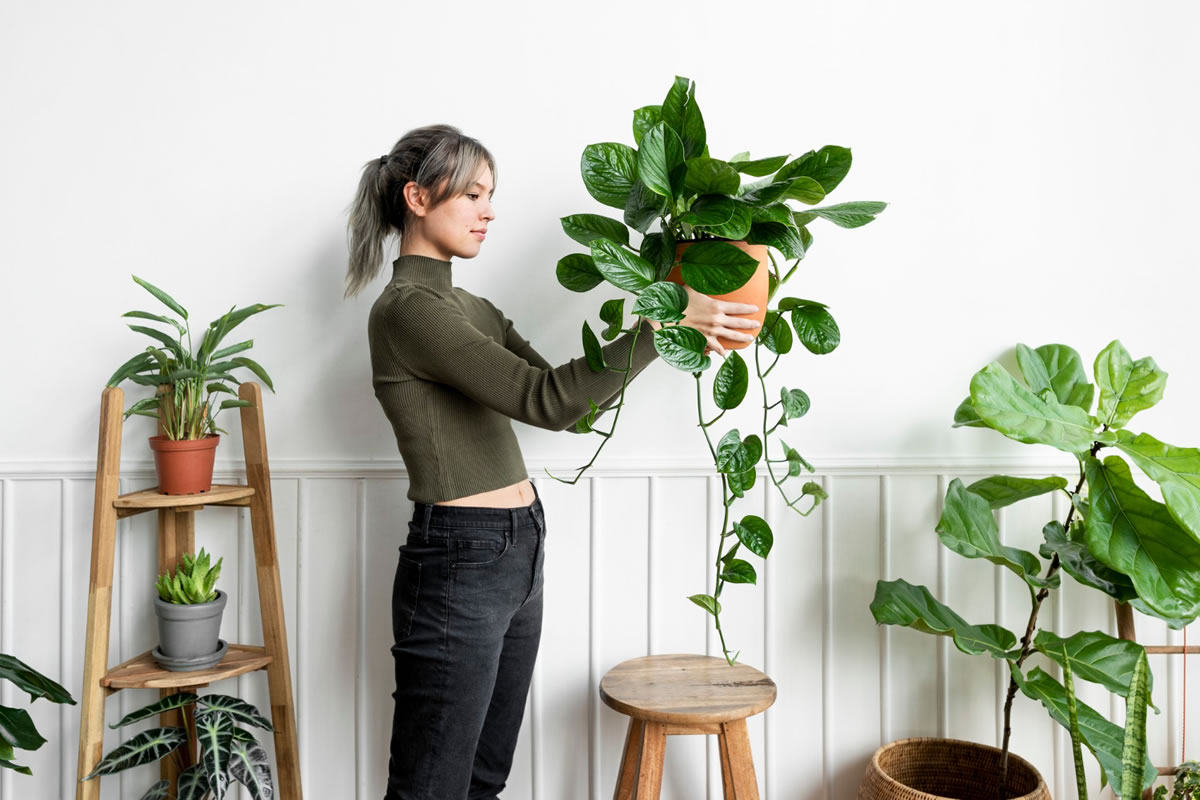

Houseplants are an excellent way to liven up any living area. Studies show they can also purify the air, making them valuable inhabitants of your apartment. But what if you don't have much of a green thumb? If you're new to assuming care of plants, the great news is that it doesn't take a degree in botany to help them to flourish in your surroundings. There are seven main things to remember when taking care of indoor plants, and experts from our apartments for rent in Yulee, FL, compiled them below.
Each houseplant arrives with its own collection of instructions. These can be located on the little tab in the dirt in the pot you purchased it in. Read it and any other guidance you might find online about your plant before doing anything else (frankly, even purchasing it). Then, if you think you can maintain the plant the way it requires to be cared for, you can bring it home.
Each plant is distinctive, which means each has its own watering guidelines. Start by observing the directions on the tab, then alter based on your plant's appearance. It is helpful to know the indications of under- and overwatering. If you've under-watered, the dirt will seem dry and crumbly. Even after a few days, the soil will still be wet if you've overwatered. Find a balance to ensure your plant gets just the right amount of water.
Some plants need more sun than others. You have to find a balance — too much sunshine can burn it, while too little will make it appear wilted. Be attentive to how much sunlight it gets each day, and modify as needed. As always, the directions are a reasonable baseline, to begin with.
Besides examining the dirt, it is crucial to ensure your plant looks healthy. If the leaves start to look dry, it might be time to relocate the plant out of any immediate sunlight. If the plant isn't thriving or looks like it's attempting to grow towards where the sunlight shines, you should move it into the sunshine. Any brown or yellow scars are a problem and may demand that you improve the humidity of their atmosphere.
You can repot any time during a plant's life cycle, but there are signs that your plant really needs it. When fresh leaves grow gradually and are smaller than more senior leaves, when the soil parches out more fast than it used to, or when the roots are either dense or overgrown, you know it is time. Move your plant to a fresh pot just before its growth period to guarantee its health.
Hold your plants in an area with a moderate, even temperature. That, in part, suggests keeping them distanced from any heating vents or air conditioners.
Don't forget that plants need nourishment, too. Fertilize your plants when repotting or when they appear to stop growing. Remember to feed them just enough because too much fertilizer can damage their growth.